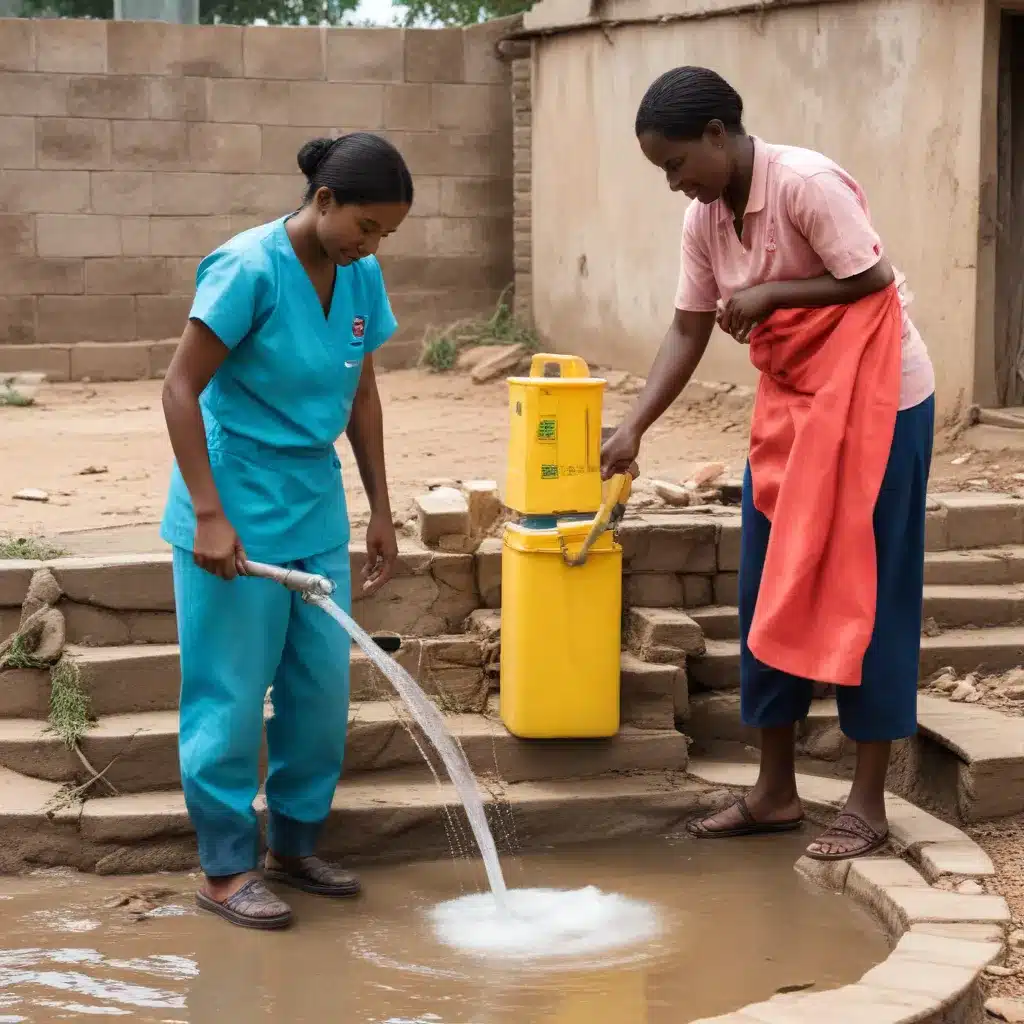
Navigating the Complexities of Emergency WASH Response
In the face of increasingly frequent and severe natural disasters, humanitarian crises, and public health emergencies, the need for robust and coordinated water, sanitation, and hygiene (WASH) services has never been more critical. When vulnerable communities are thrust into crisis, access to safe water, proper sanitation, and effective hygiene practices can mean the difference between life and death.
Strengthening emergency WASH coordination through multilevel partnerships is essential for ensuring that aid reaches those in greatest need and that scarce resources are utilized efficiently. By fostering collaboration between global, national, and local stakeholders, the humanitarian WASH community can harness diverse expertise, streamline response efforts, and empower affected populations to take an active role in their own recovery.
Aligning Global and Local WASH Priorities
Effective emergency WASH coordination begins with aligning global frameworks and competency standards with the realities on the ground. The Global Nutrition Cluster’s (GNC) Capacity Development Framework provides a comprehensive roadmap for strengthening the skills and knowledge of nutrition actors at all levels, from introductory to master-level competencies. This framework can serve as a model for the WASH sector, helping to ensure that global best practices are effectively translated into local action.
At the global level, the GNC team manages a suite of capacity-building activities, including an eLearning platform, blended learning programs, training packages, and a mentoring program. These offerings empower nutrition professionals to develop the necessary skills and knowledge to excel in their roles, whether they are cluster coordinators, information managers, or emergency responders.
At the country level, the GNC also facilitates the establishment of Training of Trainers (ToT) events, which build a pool of skilled facilitators who can effectively deliver training in their respective humanitarian contexts. This approach helps to ensure that capacity-building initiatives are not only globally consistent but also locally relevant and sustainable.
Fostering Multilevel Partnerships for WASH Coordination
Strengthening emergency WASH coordination requires a multifaceted approach that brings together stakeholders at the global, national, and local levels. The PSEA Network model, developed by UNHCR, offers valuable insights into how such coordination can be achieved.
In refugee emergencies, UNHCR takes the lead in establishing and coordinating the PSEA Network, which serves as the primary body for technical-level coordination and oversight of protection from sexual exploitation and abuse (PSEA) activities. This network is responsible for implementing coordinated actions between member organizations to minimize the risk of SEA, ensure effective response, and raise awareness within the humanitarian community.
Similarly, in emergency WASH coordination, the establishment of a dedicated WASH Coordination Network, with clear reporting lines and defined roles and responsibilities, can be a game-changer. Such a network should bring together UN agencies, international and national NGOs, government entities, and local community organizations to align on a common strategy, share best practices, and ensure the seamless integration of WASH services across the humanitarian response.
Embedding WASH Coordination in Broader Humanitarian Structures
To further strengthen emergency WASH coordination, it is crucial to embed these efforts within broader humanitarian coordination structures, such as the Humanitarian Response Plan (HRP) and the Refugee Response Plan (RRP). By integrating WASH indicators and activities into these overarching frameworks, the WASH Coordination Network can ensure that WASH considerations are prioritized and adequately resourced throughout the humanitarian response.
The VA Greater Los Angeles (VAGLA) experience with the Care, Treatment, and Rehabilitation Service (CTRS) for Veterans experiencing homelessness provides a compelling example of how this integration can be achieved. Through close collaboration between WASH stakeholders, healthcare providers, and Veteran-led committees, CTRS was able to adapt its services to better meet the needs of its residents, including the provision of on-site primary and mental healthcare, the transformation of tents into tiny homes, and the establishment of a Veteran Engagement Committee to amplify the voices of those being served.
Empowering Local Ownership and Sustainability
Ultimately, the success of emergency WASH coordination hinges on the active engagement and ownership of local communities. By fostering multilevel partnerships, the humanitarian WASH community can empower affected populations to take a leading role in the design, implementation, and evaluation of WASH interventions, ensuring that they are culturally appropriate, responsive to local needs, and sustainable over the long term.
The CTRS experience demonstrates the power of this approach, with Veterans participating in a Veteran-led Resident Council that provided ongoing feedback and guidance to the program’s leadership. This level of community engagement not only improved the quality of services but also instilled a sense of ownership and pride among the residents, setting the stage for more enduring and impactful WASH outcomes.
Conclusion: Charting a Path Forward for Emergency WASH Coordination
As the frequency and severity of humanitarian crises continue to rise, the need for robust and coordinated WASH responses has never been more pressing. By harnessing the power of multilevel partnerships, the humanitarian WASH community can leverage global expertise, align local priorities, and empower affected communities to take an active role in their own recovery.
Through initiatives like the GNC’s Capacity Development Framework and the UNHCR-led PSEA Network model, the WASH sector can develop a roadmap for strengthening emergency WASH coordination, ensuring that aid reaches those in greatest need and that scarce resources are utilized efficiently. By embedding these efforts within broader humanitarian structures and fostering local ownership, the WASH community can pave the way for more sustainable, equitable, and impactful WASH interventions, ultimately saving lives and restoring dignity in the face of crisis.
Visit the Joint Action for Water website to learn more about our work.

